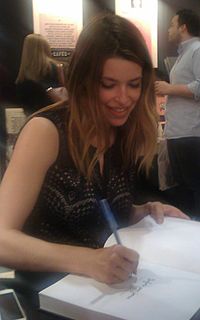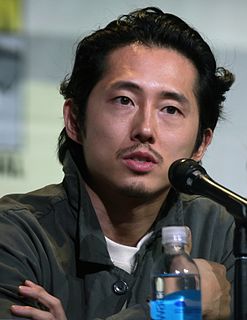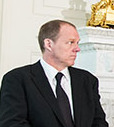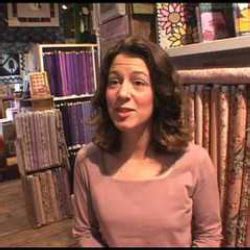A Quote by Arthur Miller
The play is really a kind of nightmare. It ought to flow rapidly and effortlessly from one moment to another. In London, we had difficulty with the set, which required too much effort to move around. Having gotten the benefit of seeing it done once, I wanted to work on the script, to make it sharper and more pointed.
Related Quotes
In terms of how I work with actors, having worked so heavily on the script I have a very clear idea of the characters; they are reasonably well illustrated in the script. If you cast it right, to a great degree you can hand it over to the actor and I just make suggestions. I'm not the kind of director who needs or wants to get into too much finessing. Ideally, when you hit the set, you have this conversation, like, 'eh, what did you think?' 'I don't know, what did you think?' 'Why don't we just try it again, make a few physical changes.'
Everyone was saved once by music. So I decided to REALLY work on my songs and not just "play" - to make something really good, more "professional." Something which makes you feel better; a song who says: "I know how much you're sad, and you're not alone, this is a song made for you." I really wanted to help with my music.
Having read the source material, I had to have drawn from that. As a fan, I wanted to remain true to that character, but it was really cool because, as we were figuring these characters out, I realized that there was a lot more backstory, rather than what I had gotten just from reading the book. Glenn doesn't really get much of a backstory there. He's just seen as this kid who is put in this situation, not knowing where his mind-set is, but then you slowly see him start to develop.
I did The Seagull, the Chekhov play, on Broadway, a couple of years ago, and I had done it in London, and I became completely obsessed with the character, Nina, that I played in that. She's an actress. I couldn't find a play after that, that I wanted to do, because I couldn't think of doing anything else. Every part is a disappointment, once you've done that part.
I call it "being interrupted by success." We had done The Soft Bulletin, which came out in 1999, and we knew we that were gonna make another record before too long. But in between this, we were still in this mode of kind of just - not re-creating what we could be, but kind of doing different things. For the longest time in the Flaming Lips we were like, "Make a record, go on tour. Come back, make another record," and you know, I think, frankly, we were kind of like, "There's more to life than just recording records and going on tour."







































